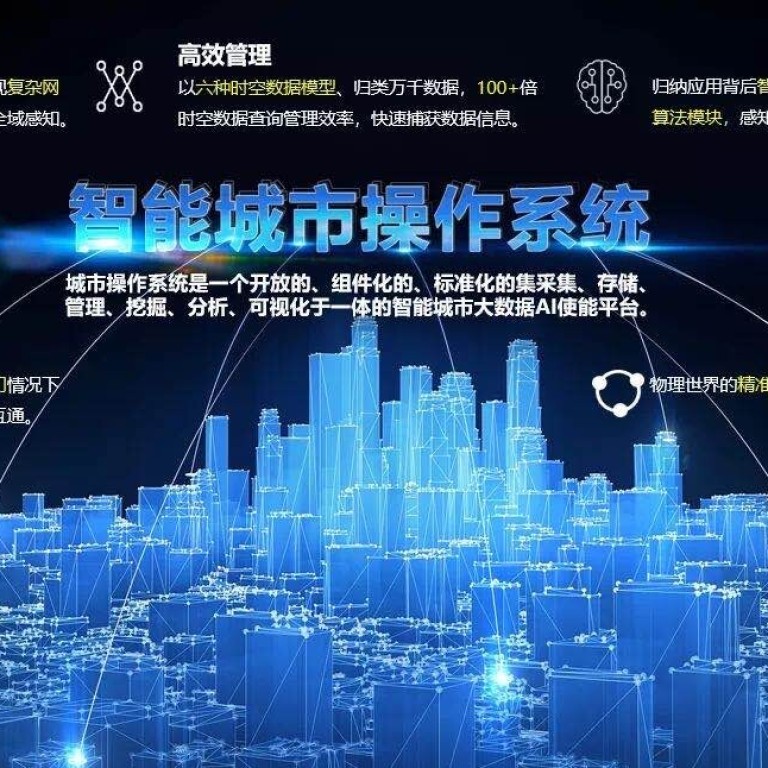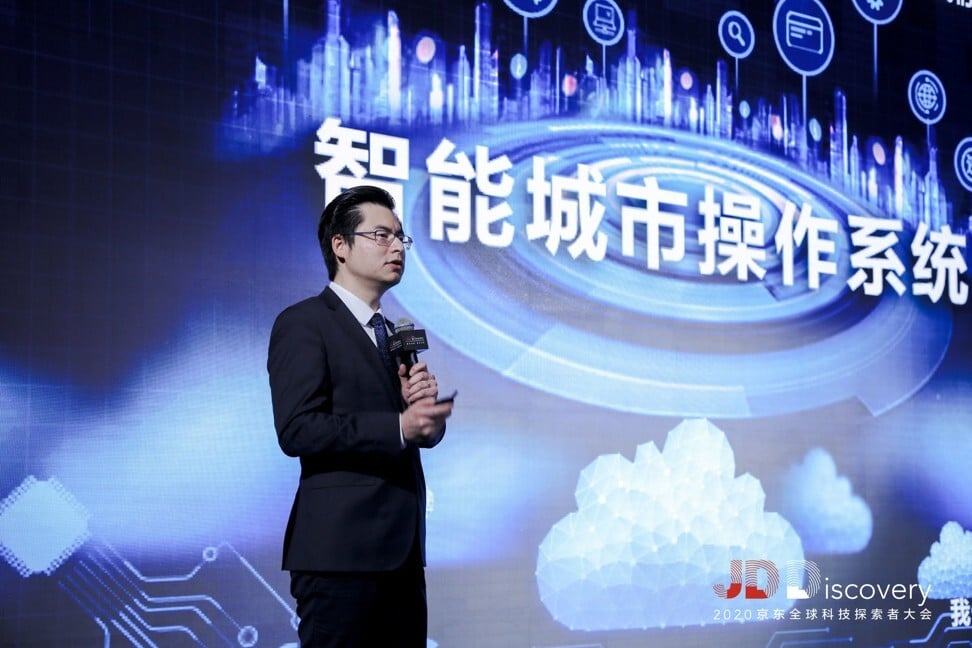
JD unveils first phase of Xiongan smart city operating system for Xi Jinping’s city of the future
- JD Digits, the e-commerce giant’s big data arm, is building up a smart city operating system that uses artificial intelligence
- Alibaba, Tencent and Baidu all have their own plans for Xiongan, a smart city project personally backed by Chinese President Xi Jinping
The platform is supposed to gather all the city’s data in one place, making it easier to be shared, the company said on Thursday. describing it as an integrated or “block data” platform. The Intelligent City operating system, unveiled at the company’s JD Discovery event, is a collaboration between JD Digits, previously known as JD Finance, and the state-owned China Xiongan Group.
During the event, JD vice-president Zheng Yu, who is also the chief data scientist for JD Digits and director of JD Intelligent City Research, described how the system brings disparate data together. The system collects not just traditional government data, but also voice and video data and so-called spatiotemporal data, such as travel and consumption records. The data is combined to be used for future data analysis and mining, Zheng said.

“In the era of smart cities, we need not only speech and facial recognition, which belong to widely used artificial intelligence technology,” he said. “We need more specific AI models for smart city applications such as traffic flow prediction, early warning for crowd gatherings and locations for charging stations.”
The system is also meant to notify relevant departments of potential emergencies. One of the applications Zheng mentioned is Covid-19 prevention and control.
This technology is being rolled out in the carefully planned metropolis of Xiongan, a city of 5 million people that is meant to be a model smart city that will relieve China’s congested capital city of its non-essential functions. It is located about 100 kilometres southwest of Beijing, which now has more than 20 million residents, in a previously remote area of China’s Hebei province.
Is Xi getting impatient with lack of progress on ‘future city’?
Since Xi put out the call to build up the new area, China’s tech giants have piled in. Alibaba Group Holding, Tencent Holdings, Baidu, Zhongguancun Science Park and Tsinghua University have all established projects in Xiongan. The projects include the use of sensors, 5G networks and facilities for supercomputing and big data in the pursuit of building up the smart city. Alibaba is the parent company of the Post.
JD Digits has expanded in recent years into using new technologies such as artificial intelligence, blockchain and big data. This includes helping to build smart cities, and the company currently has active Intelligent City projects in 20 cities across China, according to Zheng.

